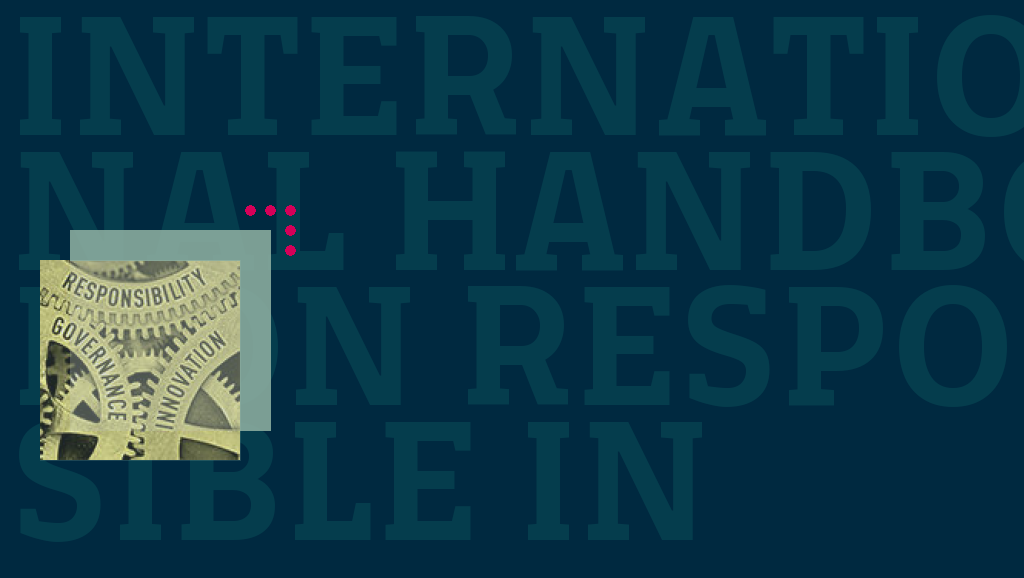On 27 November 2019, Manchester Metropolitan University hosted a book launch for the International Handbook on Responsible Innovation, co-edited by Rene von Schomberg and our own Foreign Scientific Correspondent Jonathan Hankins.
The event was jointly organized by the Manchester Metropolitan University (MMU) Sustainable and Ethical Enterprise Group (SEEG) and the University of Manchester Alliance Business School’s Institute of Innovation Research (Mioir).
The event was very well attended, with an extremely diverse audience that included non-academic experts with backgrounds in industry and governance and a swathe of musicians, craftworkers and others drawn by Hankins’ return to his home city and institution.
The event opened with lunch, followed by a welcome from Dominic Medway, Deputy Pro-Vice-Chancellor of the MMU Faculty of Business and Law, in which he described the historical development of the MMU as a whole, its current goals and how its approach can affect the future.
The first Keynote speech, Why Responsible Innovation? was delivered by René von Schomberg. After addressing the deficits of the current innovation system (as described in his chapter in the Handbook), the author described what he sees as some of the necessary transformations required for a move towards promoting a responsible innovation approach. Such a move would require (amongst other things) an overhaul of the rewards system currently used in Universities and within funding applications and the leap to questioning the funding of innovation as a good in itself, alongside re-addressing a host of other issues related to the European Union’s approach to how it defines its role in the innovation system.
The Foundation’s own Jonathan Hankins then delivered the second keynote of the event entitled Poiesis Intensive Responsible Innovation, based upon his chapter in the Handbook and forthcoming monograph Responsible Innovation, a Narrative Approach.
Hankins used his experience of working in furniture restoration to argue that in a process that requires decision-making and value laden choices, those involved in the process work within a narrative that the work community itself constructs. This narrative reflects the personally held beliefs of those participating in the work, guiding the choices made and decisions taken during the production process. In the craft example of furniture restoration described, Hankins explained the importance of tacit embodied knowledge, the absence of documentation that governs the work process, and the necessity of developing a language within the workplace that allows all those participating to understand the goal in their own terms. He used the example of striving for beauty as a stated production goal, before raising the question of how this particular research methodology could be used to investigate decision-making processes in EU funded science projects.
After a short break, Professor Sally Randles offered an outline of the International Handbook in terms of its role within the study of RI and RRI, focusing on her particular expertise in comparing what she calls little rri (or de-facto RI) and the RRI approach as represented by the EU. She then offered an overview of some of the projects funded through the EU that involved case study analysis, very much reflecting Hankins’ interests (which are in turn influenced by Randles’ work in this field).
David Gee, co-author of the Late Lessons From Early Warnings, Science, Precaution, Innovation report published by the European Environmental Agency was the final speaker.
Gee presented a series of overviews of case studies from the report, describing early developments in the monitoring of acid rain, how executive decisions lead to petrol becoming leaded despite evidence that it would be damaging to children’s health, how global warming had been predicted and measured in the 1800’s, and how the development path that led to the expansion of industrialized food production was chosen over that of local food production.
The final hour was taken up with audience questions and discussion.
One aspect of this discussion that distinguished it from the previous Handbook related Challenges for Responsible Innovation events was the presence of a large group of non-academic discussants. This diversity allowed a very wide-ranging debate to develop, with questions raised on how practices surrounding RI approaches could be scaled up, how changes could be envisaged that would democratize the policy-making decisions that go on to determine the paths that are followed for years to come, and the perceived problem that more pressure to produce, led by the use of metrics across society, leads to a drop in quality across a broad range of settings, alongside other issues related to political economics.
The topic of food production as raised by David Gee was well debated, as several members of the audience had particular interest in organic farming through their own experience in allotment production. While discussing the food production policy paths raised by David Gee, it became clear that the second (local production) path that was not followed was seen as of particular value to them.
One quote summarizes the position taken by this group in relation to the industrial food production model, whose aims were very much seen as different: ‘We just want to look after the land’.
This led to a discussion that touched upon metrics in the granting of EU funding and in academic career-making. Measuring through high impact journal publications was seen as deeply flawed for several reasons, including the restricted circulation such publications receive. The argument was made that if research wants to give something back to society, other approaches are necessary, and that these approaches need to be valorized within academia and research funding.
The event closed with a reception, with all those present leaving with a copy of Late Lessons from Early Warnings under their arm. It was a beautifully run and organized event, and all at the Foundation congratulate the Manchester team and thank them for their hospitality.
Photos of the event are available below.
————–
















